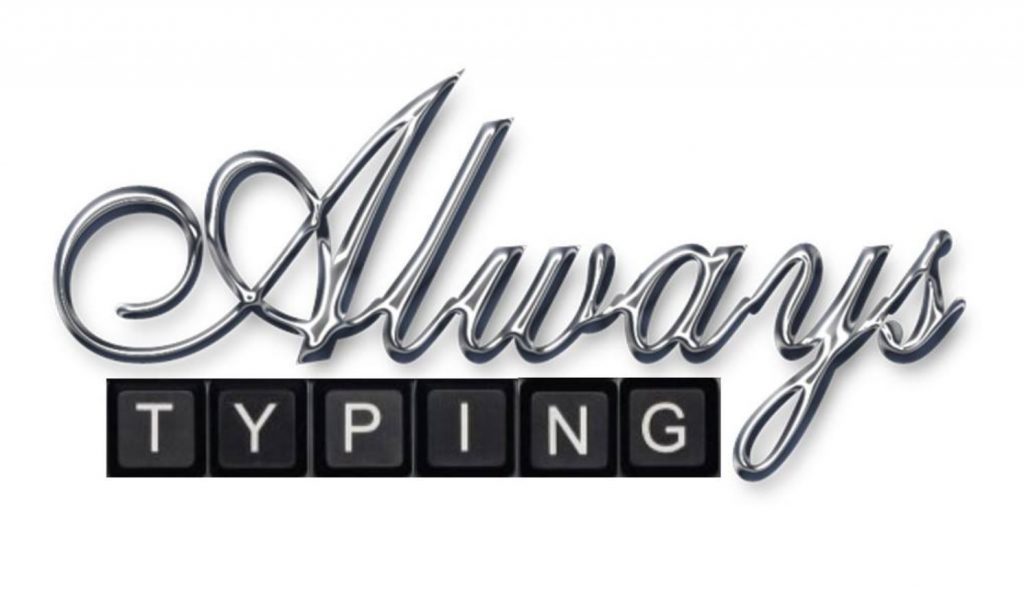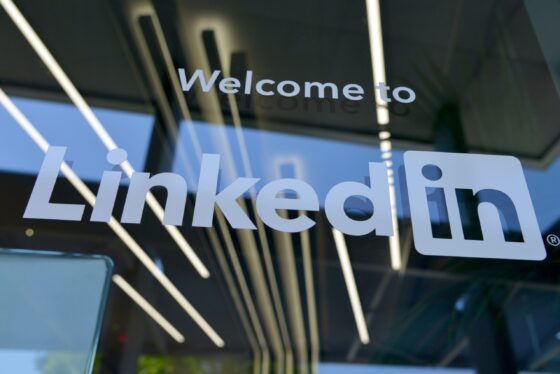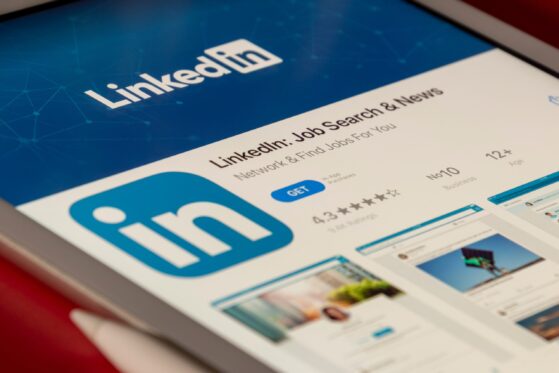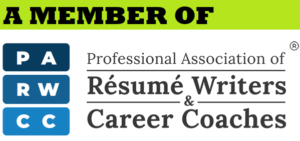An average of 62% of job seekers get at least one interview by their tenth application. While you’re searching for your new career, you may find yourself viewing various opportunities at one company and conclude that the more jobs you apply for, the more chances you’ll have to get hired. So, should you apply to multiple jobs at the same company? The short answer is that it is okay to do so. There are certain benefits to applying to the same company. However, you can’t simply throw your resume at all of the positions they have and hope something sticks. Read the job descriptions and apply to the different roles only if you’re qualified. Benefits As with anything in life, there are pros and cons to applying to multiple positions within the same company. Let’s talk about the benefits. Company Size Larger companies have different departments and a bigger array of hiring managers. This means there are more opportunities for you to get your resume seen. However, each time you apply for a new position, it is important that every cover letter and resume is tailored toward that specific position. If the company is smaller, the hiring manager may be the same person for each open position. It’s not unheard of for a hiring manager at a small company to interview someone and ask the candidate if they’re interested in another role. Exposure If you are applying for one position in particular, then that can limit your resume’s exposure to other hiring managers. Often, they don’t communicate with each other. This is especially true at larger companies. Each hiring manager is responsible for filling the roles within their department. Which means they only see the resumes that come in for their own positions. This makes submitting more than one application/resume a great idea. You will be seen by more hiring managers within the company. Again, it is imperative to only apply to those roles that you’re qualified for. Contact Connecting with the recruiter will establish your interest as valid and allow you the opportunity to explain why you are submitting a resume for more than one position. This will ensure you are noticed for both your eagerness and resourcefulness. In some cases, you may need to reach out to the human resources department and make them aware of your interest. Be sure to explain what makes you feel qualified for each position that you apply for. Don’t be afraid to ask questions. You can also use your cover letter to discuss the reasons why you are applying to multiple roles. Perhaps the company is your dream company–the cover letter is a perfect place to indicate that. Disadvantages If done properly, applying to multiple roles within a single company can net some great benefits. There have even been stories about someone accepting a position and then hearing from a hiring manager in a different department months later. On the other hand, there can be some major disadvantages to applying for multiple roles within one company. Wrong Impression Hiring managers may assume that you are applying to any and everything when they see that you’ve submitted multiple applications at the same time. Employers need to know that you are focused on your career, and not just on getting whatever is available. It’s important that it doesn’t seem like you’re wasting anyone’s time. You don’t want anyone to mistake motivation for desperation. When you’ve answered “yes” to should I apply for multiple jobs at the same company, tell them why. It’s also worth considering that aside from the hiring managers’ objective to fill an open position, it is also their objective to remove candidates from their list of potentials. If you apply for multiple positions in the same company, it’s best to limit them to two or three. Can Cause Doubt The last thing that you want to do is have a future employer doubt your intent. When you’re applying to more than one job opportunity within the same company, it can appear as though you’re indecisive and don’t even know what you want to do. They want to be assured of your commitment. They may also infer that you are insecure about your capabilities. If they think that you need to take time to figure out what it is you’re good at, they can lose interest, especially if it’s not an entry-level opportunity. Make sure that your resume extols your skills for each job that interests you so there can be no uncertainty about your qualifications. Singular job offers Some companies will only make a singular job offer. If you’re applying for multiple career opportunities, you could miss out on the job opportunity you truly wanted. Recruiters can access your profile, and they will research any previous interactions before making an offer. By applying to the roles that you are truly qualified for, you will increase your chances of getting a job offer that is right for you and right for the company. Key takeaways People rarely meet all the qualifications of a particular job; however, if you know how to do what the company wants you to do, then it is okay to apply for more than one role at the same company. Always read the job description thoroughly before applying to a new role. Remember to explain some of your reasoning in the cover letter and try to network or connect with the hiring manager and recruiter. When you find that you meet the qualifications of multiple roles, it’s time to get your resume ready. You’ll need a document that gets past the Applicant Tracking System and impresses the hiring manager. Always Typing Resumes has been helping clients do this for years. It would be a great honor to be a part of your career journey, too. Contact Us Today
10 Best Job Search Engines for the Weary Job Seeker
Did you know that 80% of jobs are found online? If you are in the middle of a job search, it can be very overwhelming to try to find the best job search engines. You’ve come to the right place. Keep reading to learn the pros and cons of the 10 best job search engines for the weary job seeker. What Is a Job Search Site? It is a centralized location where job seekers can search for open positions, and employers can seek out potential candidates. Job seekers can upload a resume and fill out an online profile. Most job search sites simplify the process by offering additional search tools that can help you refine your job targets. You can narrow down your search parameters according to keywords, location, industry, job titles, and salary. These web-based platforms offer career opportunities for temporary, seasonal, part-time, full-time, and telecommuting workers. So no matter where you’re at in your job search, there is a platform best suited for you. How to Choose the Best Job Search Websites For You Before you can choose the best job websites, you need to determine what specific job search needs are crucial to you. To make an informed decision, consider the following: #1 By Industry The first step in determining the best job board is to decide what industry you are searching in. Are you continuing on the same career path? Are you interested in switching industries altogether? Is location a factor? You want to be sure that the job site offers the best options for your industry needs. #2. User-Friendliness Does the website make it easy to search for the job you want? Are the filters optimal for your use? Is the language easily understood? Being able to quickly filter through results, and identify potential jobs will help make your job search run more smoothly. #3. Reviews It’s always a good idea to see what others have to say. Researching reviews from other job seekers who have utilized the website you are checking into allows you to gain first-hand knowledge of how useful and effective that job board is. Additionally, you can also look into the reviews that are posted about the employers you may potentially be applying to. The 10 Best Job Search Engines: A simple Google search will return tens of thousands of results on which job boards are the best. Breaking down the pros and cons of each site will help you determine which one is best for you. #1 Indeed Pros Indeed is recognized as one of the best job websites with over 16 million job search success stories shared on its platform and is arguably the largest job board worldwide. It offers job seekers the convenience of searching for employment by title, keyword, company, and location. Links to reviews posted by employees of prospective companies help potential job-seekers to get a glimpse of the company’s work environment and expectations. Not only can potential employees upload resumes, but Indeed also offers a variety of online skill assessments to amplify profiles for employers. The skill assessments are especially beneficial if jobseekers need to refresh or build both their soft and hard skills. Candidates can receive job alerts that align with other positions they’ve been reviewing. Cons Due to the overwhelming amount of websites that are posted on the platform, candidates may find themselves redirected to another site to apply for the job they’re interested in. Additionally, some of the jobs that are posted have already been filled but not removed. This could cause employers to not respond to job seekers, resulting in a feeling of rejection or of being ghosted. #2 Glassdoor Pros Glassdoor is a top performer when it comes to offering reviews from both current and former employees. Widely known as one of the largest recruiting platforms, the job search site provides detailed information about employers and their work cultures. All of its resources are organized and easily navigated across the website. Companies are conveniently rated and the details include salary expectations, benefits, and interview tips. Candidates can easily upload their resumes to their Glassdoor profiles so that potential employers can find them. Cons The search capabilities are more limited than on other websites. In order to use this website, you have to create an account. #3 LinkedIn Pros With over 706 million users worldwide, LinkedIn’s mission is to “connect the world’s professionals to make them more productive and successful”. Its platform is the most substantial networking site for professionals. Candidates can highlight their careers and interests on their profiles. Plus, you can leverage the millions of users already on the site to build your professional network. Because of its social media interface, LinkedIn users can review activity on potential employers including new job opportunities. Leading the employment connection platforms, LinkedIn modernizes the ability to establish your brand. Additionally, it has its own messaging system within the site for recruiters or hiring managers to message you directly. Connect with existing contacts and manage your network on your personal landing page. Cons Since it has such a massive amount of users worldwide, there is a heavy amount of competition in the pool of candidates applying for a job. In order to be “featured” as an applicant, potential job seekers would need to pay a monthly fee. #4 FlexJobs Pros: If you are searching for a promising website for remote or hybrid jobs, FlexJobs has an A+ rating with the Better Business Bureau. Offering both full- and part-time opportunities that have been highly vetted, FlexJobs is a great platform for finding legitimate remote employment options to suit your needs. They offer a free trial and a referral program. FlexJobs also has compiled a variety of resources available to members such as articles, tips, webinars, and skills courses. Cons Once your free trial has ended, there is a monthly membership fee. Members need to remain vigilant with logging in to check for opportunities. #5 Hired.com Pros: Hired.com is all about bringing
Tips On How to Organize Your Job Search
Did you know only 30% of job seekers are actively looking for new positions? You may not be in a rush to find a job, but being disorganized about your job search can extend even the laxest timelines. Applying to jobs continuously can be time-consuming and confusing. Did you apply for that job already? When did you apply to that company last? What information do I still need to do? That’s why you need to know how to organize your job search. Keep reading and we’ll show you how. Benefits of Organizing Your Job Search Action Plan The average job search lasts about five months. If you apply to several jobs a day for at least five days a week over five months…you have a lot of applications to keep track of. This is where being organized can be extremely helpful. Some of the benefits of organizing your job search include: Maximize Time and Efficiency Have you ever been filling out an extremely long application only to find out when you try to submit that you’ve already applied for this role? By organizing the search, you maximize your time and efficiency. You no longer waste time trying to figure out if or when you applied and can streamline the entire process. Learn From Mistakes Answering the pre-screening questions can sometimes be a lesson. If you have an organized plan for the job search, you can keep track of those answers too. Then you can figure out how to make them better for the next application. Strong Interviews Being organized will definitely strengthen your interview capabilities. You’ll have each application documented, so you can easily check back when you get an interview request and refresh your memory. This is the first step in researching the company and will demonstrate that you are excited for the opportunity. How to Organize Your Job Search To begin, you can use whatever tools or supplies you’d like to organize the job search. Maybe you’d prefer to use a pen and paper over a spreadsheet. Whatever works for you is going to be the best option, because you’ll be more likely to stick with it. Now, for the organization tips: #1: Update Your Resume The first thing you want to do is update your resume. You can’t have a streamlined and efficient job search if you are constantly looking for an updated resume. Or if you have to continuously go add information you forgot to include. Although, you do need to remember to tailor your resume to different jobs to get through the Applicant Tracking System. Once you are very clear on what you want to target, then you can update. Be sure you gather any recent information that is missing, such as training or certifications. If you are overwhelmed by the thought of doing this, we can help! Learn more about our resume services and see real client resume samples here. #2: Be Clear On the Basics You want to define the types of jobs you want to apply for and the industry. If you are interested in several, that’s okay! But by breaking it down to a specific job type, you make sure you have a focused job search. This will go a long way in achieving success. #3: Track Progress Be sure to track your progress throughout the job search. Whether you create a paper sheet or use an online version, you want to include the following information about each application: Ensuring you have this information for every application will help you to avoid costly mistakes. There are a lot of free project management tools that would be great for managing this, such as Asana. #4: Create a Schedule It’s easy to get caught up in the job search and spend all your time applying for roles. While it’s good you want to apply to as many as possible, it’s important you don’t overdo it and burn out. If the job search lasts for several months, that could lead to discouragement quickly. So, set a plan for your job search. Start by creating a goal for the number of applications you’ll send out daily (3-5) and determine how many days a week you’ll do this. Then follow the schedule! #5: Use a Checklist You want to make sure you include all relevant information before you submit an application. You also want to make sure you have everything ready to go before beginning the job search Creating checklists ensures you don’t miss a step. It’s also a way to increase your productivity and manage your time more effectively. #6: Expand Your Network Your job search is an excellent time to build your network. When searching for jobs, you can identify key people in the company or industry to connect with. This will help you out in the long run. Many job opportunities come from a referral, so networking is an invaluable tool. Complete #1 On Your Job Search Game Plan Now you know how to organize your job search! The first step is to update your resume and you are in the right place. Always Typing Resumes has the expertise you need to develop a professional resume that passes through ATS software and captures the attention of recruiters. Contact Us Today
How to Create a List of Target Jobs and Companies for Your Job Search
Did you know the average job search takes at least five months? You can keep your efforts focused and organized by defining your target jobs and companies. The job search doesn’t have to be as painful as some make it. In fact, if your job search feels like a full-time job, you’re doing it wrong. Below, you’ll learn how to create a targeted career list so you know exactly what to apply for and which companies you want to work with. Benefits of Creating a Targeted Career List Oftentimes, job seekers are distressed after being laid off or terminated, so organizing the job search is the last thing on their minds. Some have been searching for so long that they get discouraged and lose motivation. While both of these situations are understandable, it’s important you don’t let these factors impact your job search. With a little planning and organization, you can make sure your time is spent wisely. Other benefits of creating a list of target jobs and companies include: How to Create a List of Target Jobs and Companies One look at Indeed or LinkedIn and the millions of companies listed will leave the most organized person overwhelmed. So, don’t worry. It is much easier than that. We’ll outline how to create a list below: Identify Companies With Job Opportunities in Your Area If you want to work at a company with an on-site or hybrid working model, you need to start by identifying potential companies in your geographic area. You can search for companies in the area on Google or type in your zip code on one of the job search sites to get an extensive list. If you are looking for a remote opportunity, then the job search pool just became an ocean. The possibilities are endless for remote workers. That’s why the following points are critical for remote job seekers to streamline their job search. It’s okay if the list seems very long at first. You will eventually narrow it down as you research companies and speak to your network. Leverage Your Network Your network is a tool that is likely underused. When you consider all of the people you know from your job (coworkers, bosses, vendors, customers), you have the entire world at your disposal. Many people know about jobs that will be open before they are publicly announced, meaning you could be ahead of the competition. So, speak to your network. Put your feelers out and let those you are closest to know that you are looking. Not only can this help you to find target jobs, but it can also be an asset if you do apply to these jobs. You have someone on the inside who can vouch for you! While you’re at it, you could actively work to expand your network during your job search. It’s a great time to forge new relationships that can help you advance your career. Review Current Industry Contacts If you don’t have a non-compete agreement and are looking for positions in your current industry, your contacts are a great resource. These contacts can range from vendors and suppliers to customers. Your customers have worked with you and know what an asset you are to an organization. If you have a strong relationship with your customers, you should ask them to let you know of any job opportunities. Talk to Current or Previous Coworkers Your direct coworkers know what kind of worker you are and are likely in the same types of roles you want to apply for. And those coworkers that you have a solid relationship with can put in a few positive words for you to the hiring manager. Target Careers Based On Interests and Passions If you want to break your career list down even further, you should look at the companies that fuel your interests and passions. No one wants to work at a job that they dread each day. So, look at what intrigues you. What kind of roles will keep you on your toes and excited to go to work each day? Those are the companies you want to apply to. Search LinkedIn LinkedIn is one of the best tools for job seekers. The platform allows you to research companies, apply for jobs, connect with your network, and more. Once you have a list of potential companies, you should head to LinkedIn to discover more about them. You can learn the company’s size, see recent news, read articles from thought leaders, and view available positions. Don’t Forget Company Websites As you can imagine, there is a wealth of information on company websites. If you are one of the few who know exactly which company or company type you want to work for, take a gander at their site. It’s always better to apply for roles directly with the company when possible. While you’re there, check out what they have going on and try to find out who the hiring managers are. Also, look at any team website pages they have to see if there are referral programs. If so, you can reach out to staff members on LinkedIn to talk to them about your desire to work at the company and see if they’ll refer you. Often those referrals get the employees some type of bonus. So, you’re not reaching for the stars in asking. Protect yourself Don’t allow desperation for a job to guide your decisions when making your job and company target lists. If the company has bad reviews from employees (check out Glassdoor) or a lot of customer complaints (look at their Better Business Bureau), it’s a good idea to mark them off your list. You don’t want to get stuck somewhere you hate. Prepare Your Resume for Your Job Search Now you know how to create a list of target jobs and companies. Your job search will be more organized and go much more smoothly with this strategy. Before you start your search, have you
How to Research a Company Using LinkedIn to Prepare for an Interview
LinkedIn has over 57 million businesses registered. When you are preparing for an interview, there is a strong chance the company or the interviewer is on LinkedIn. The platform is a great tool to help you prepare for an interview. You’re probably wondering how. If so, this article is for you! Learn how to research a company for an interview below. What to Research About a Company Before an Interview There is a lot of information out there about companies and it may be hard to know what is important before an interview. There are five key areas you need to focus on before heading into your interview if you want to wow the company. Those areas are: Company Basics If you don’t understand the basics about the company, the role, and the industry, the interview is not going to go well. You should research the products or services they offer, the size of the company, and the company’s mission. Understanding these company basics makes you a stronger interviewer. Not only can you answer the questions more accurately and in relation to the company, but you can also ask thoughtful questions. Key Leaders & Company Stats Depending on the size of the company, this information may or may not be readily available. Finding out a little about the key leaders in the company can tell you a lot about the culture. While finding this information, you should also see if you can discover more about the company’s financial health and its standing among competitors. Recent News Has the company been making waves in the news recently? A quick Google search for “company name + news” will give you the good and the bad. Scanning the most recent news articles about the business can give you important nuggets of information that could make you stand out in an interview. Knowing something like that about the company and asking for details could be the differentiator you need to land the job. Culture A job interview is just as much an assessment of the company to make sure you fit as it is for them to see if you are the best candidate for the role. LinkedIn and Glassdoor both offer great platforms that can give you insight into a company’s culture. Let’s say you are an eccentric person who prefers working with little supervision. However, the company likes to micromanage its teams to ensure processes are followed to a T. Then you may not be a good fit. And finding this out before an interview so you can ask targeted questions to clarify this suspicion will help you make the best decision about your next job. Your Interviewer It may or may not be possible to know who is interviewing you before you go in. If you do know, you can easily look them up on the company’s website or LinkedIn. Building rapport with your interviewer is important, so finding out a few small details that you can tie in or relate to can help to create that connection. It is important you don’t make it obvious you found out this information from a profile. For example, if the interviewer posted a picture of their cat, you don’t want to say “I saw your cat on LinkedIn and I love cats!” Instead, you would want to include that you like cats when discussing your likes or what you do outside of work. This makes you seem like less of a stalker while still creating the connection. How to Research a Company For an Interview Using LinkedIn Did you know that you can find most of the above information by perusing LinkedIn? So many companies have a presence on LinkedIn that finding out more about the entire organization is fairly simple. Here is how to discover the information you need for a successful interview: Find Their Company Profile The first step is to find the company’s profile on LinkedIn. Once you do, you’ll usually find out more about the mission, the vision, open jobs, and the team employed by the company. Many companies also post recent news or updates about the company that you can use during an interview. The company profile could lead you to the answers for all five areas discussed above. Look Through Current Employees Browsing the current team members will tell you more about possible interviewers or leaders if you are hired. And you can learn a lot about someone with a LinkedIn profile. Many employees leave testimonials for exceptional leaders, so you can get a personalized review. Identify Possible Connections Does someone you know work at the company? A possible connection could make all the difference. Especially if the connection is close and can give you a recommendation or a referral. When you find the company page, it will also highlight connections you have at the company, making it easier to determine. Prepare Your LinkedIn Profile and Resume Before Your Search Now that you know how to research a company for an interview, you need to make sure your profile and career documents are updated. At Always Typing Resumes, we can help you professionalize and optimize your LinkedIn profile so recruiters take notice. Our services include resumes, cover letters, and LinkedIn profiles. Check Out Our Services Here
Do I Need a LinkedIn Profile? Yes, You Do!
More than 57 million businesses have LinkedIn profiles. This means, the hiring managers and recruiters from 57 million businesses have profiles and could potentially find yours. That is if you have one. Clients ask us every single day, “Do I need a LinkedIn profile?” The answer is yes, yes you do. You need one now. If you want to use LinkedIn to find jobs or if you want the 90% of recruiters and hiring managers who source candidates using LinkedIn to find you, this article is for you! Why Do I Need a LinkedIn Profile? Millions of people are using LinkedIn to find a job and just as many people are using LinkedIn to network, showcase their expertise, and build solid relationships that will make an impact later in their careers. Out of the site’s 885 million users, more than 310 million of them are active each month. LinkedIn is a highly popular and active social media site. Professionals across all industries find value in having a profile, whether they’re looking for a job or are happy where they are. The potential of LinkedIn is immeasurable when you really think about it. It only takes a few minutes to create a profile and a few more to fill it out, so why wouldn’t you want one? Advantages of Having a Profile When Job Searching on LinkedIn So, what are the benefits of having a profile? We mentioned a few above but we’ll go into more detail here. Read more: It’s More Personal One advantage of having a profile during your LinkedIn job search is that you can be more personable on the profile. When writing a resume, there are very strict industry guidelines that must be followed. These rules leave little room for imagination or personality. However, you can let your personality shine on LinkedIn. In the summary (a/k/a About section), you can discuss the “why” behind what you do. You can even show off the causes most important to you in the affiliations and organizations section. There are also many opportunities to brag about awards, honors, or publications that your resume may not have room for. Search Optimization You likely have heard about applicant tracking systems and the importance of optimizing your resume. But did you know it’s just as crucial you optimize your LinkedIn profile? The entire site works a lot like Google, so recruiters and hiring managers can find you easily with a few keywords. We’ll talk about ranking in recruiter searches in a little bit. Networking Having a strong network is an invaluable asset to have in your career. LinkedIn allows you to connect with previous colleagues or schoolmates that could help you get a sweet deal today. You never know when your network could come in handy, so you must always work on it. Other benefits of networking include: Networking may seem scary at first, but it gets easier as you go. Having a great LinkedIn profile makes it go much more smoothly. You Can Showcase Industry Expertise When someone visits your LinkedIn profile, they can quickly and easily see what you are an expert in. There are very few industries where this is not an advantage. You can easily position yourself as an expert or thought leader, making your job search much easier in the long run. In fact, you may catch the eye of some recruiters and speed up the process quite a bit. Research Potential Employers and Hiring Managers After you use LinkedIn to apply for jobs and win a coveted interview, you can use LinkedIn to research the company and the people. This is especially important when you want to try to find out more about the person who will be interviewing you. How Recruiters and Hiring Managers Use LinkedIn Not surprisingly, recruiters and hiring managers both leverage LinkedIn a little differently. For one, hiring managers – you know, the people who will be interviewing you – will look at your profile to get an idea of whether you fit within the culture of their company. Recruiters use LinkedIn to find you. Recruiters That’s right. You’re looking for a job and recruiters are searching for people like you to fill those jobs. In fact, they pay for this privilege. When you develop and optimize your LinkedIn profile, you make it easier for recruiters to find you. Your summary is a great opportunity to showcase your expertise and give the reader something memorable that makes you stand out among your competitors. Remember to use as many relevant keywords as you can, but use them in a way that makes sense. You don’t want to be accused of keyword stuffing. LinkedIn will rank you in recruiter searches based on keyword density, among other things. Most companies expect you to have a LinkedIn profile and some even demand it. Go ahead and create an impactful profile so that you don’t have to throw something together at the last minute. Hiring Managers Hiring managers use social media, especially LinkedIn, to learn more about candidates. When applying for a professional role, a lack of a LinkedIn profile could be what prevents you from moving forward. Hiring managers look at LinkedIn to understand your career path and industry expertise. It is an excellent way to showcase your accomplishments so hiring managers can’t wait to meet you. You can also set yourself apart from other candidates by posting relevant content within industry-specific groups. It’ll help potential bosses think of you as an expert. Prepare Your Career Documents Before Applying to LinkedIn Jobs Now you get why we say, “Yes” when someone asks, “Do I need a LinkedIn profile?” We’ll go as far as to say it is just as important as your resume. This is especially true for job seekers applying to LinkedIn jobs. Before starting your LinkedIn job search, you must ensure your documents and profile are as professional and up-to-date as possible! Contact Us Today








